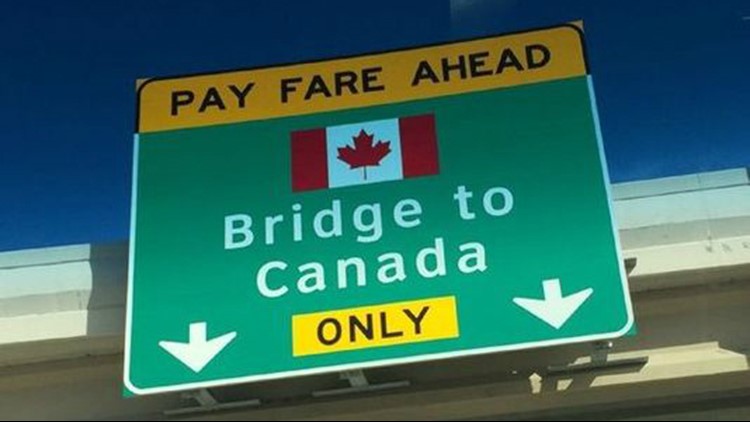It's summer travel season. And if you're looking for a quick trip out of the country, a drive to Canada may be on your agenda. Here's what you need to know before making the trip.
Do I need a passport to drive to Canada?
Canadian law requires that all persons entering Canada carry both proof of citizenship and proof of identity, according to the U.S. Department of State website.
For U.S. citizens and permanent residents, you must carry proof of citizenship, such as a passport, birth certificate, a certificate of citizenship or naturalization, a U.S. permanent resident card, or a certificate of Indian status, along with photo identification. Children under 16 need only present proof of U.S. citizenship.
If you are a permanent resident of the U.S., you must carry proof of your status, such as a U.S. permanent resident card, according to the Canada Border Services Agency.
While a U.S. citizen's government-issued photo ID, such as a driver’s license, and proof of U.S. citizenship, such as a birth certificate or naturalization certificate, are sufficient to cross into Canada, you'll need additional documents to re-enter the United States, according to Liz Jones of Leaf Group.
Do I need a passport to re-enter the U.S. from Canada?
According to U.S. Customs and Border Protection, U.S. citizens entering the United States by land or sea are required to present a valid Western Hemisphere travel initiative-compliant document, which includes:
- U.S. passports
- U.S. passport cards
- Enhanced driver's licenses
- Trusted Traveler cards (Global Entry*, NEXUS, SENTRI, or FAST)
- Military identification cards
- * The Global Entry (GE) card is only an ENTRY document and may not be used to enter Canada, Mexico or adjacent island.
A Michigan enhanced driver's license meets driving, identification and border crossing needs, according to the state of Michigan website.
"It is a federally approved document that allows you to re-enter the U.S. when traveling by land or sea from Canada, Mexico, Bermuda and the Caribbean," according to the site.
U.S. citizen children, ages 15 and under, arriving by land or sea from Canada may present an original or copy of his or her birth certificate (issued in the state where he or she was born), a consular report of birth abroad, or a naturalization certificate, according to U.S. Customs and Border Protection. If the child is a newborn and the actual birth certificate has not arrived, a hospital issued birth certificate will be accepted.
What if my passport has my old name on it?
If you're a U.S. citizen and your name has changed due to marriage, divorce or another reason and your passport has your old name on it, you can still use the passport, but you'll need to bring proof of the name change, according to U.S. Customs and Border Control. Acceptable documents include a marriage certificate, divorce decree or court documents showing a legal name change.
What does it cost to go to Canada?
It'll cost you $5 to cross the Ambassador Bridge into Canada if you're in a passenger vehicle or on a motorcycle, according to AmbassadorBridge.com. Add a trailer to either of those and it'll cost you $10.
If you opt for the Detroit-Windsor tunnel, it costs $5 for automobiles and RVs, according to dwtunnel.com. On the way back, it's only $4.50.
Can my dog or cat travel to Canada?
Furry friends joining your Canadian road trip can enter Canada if they're accompanied by a rabies vaccination certification, according to the Canadian Food Inspection Agency.
If you dog is less than three months old, a rabies certification is not required, but proof of the dog's age must be provided if requested. Cats less than 3 months are exempt from the requirements.
►Make it easy to keep up to date with more stories like this. Download the WZZM 13 app now.
Have a news tip? Email news@wzzm13.com, visit our Facebook page or Twitter.



